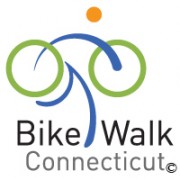Riding to Work, Protecting Vulnerable on the Way
/
The goal is 2,500 people. With the start of CTrides week set to begin on May 13, there are about 250 people registered on the organization’s website of free services and information, thus far. Officials are hoping for a boost of support in the coming days, and remain optimistic, perhaps encouraged by the arrival (finally) of springtime weather and the increase in cyclists it inevitably brings. And they acknowledge that many may choose to observe the spirit of the day, without formally registering their participation.
Commuters are asked to carpool, vanpool, take buses or trains, walk, bike or telecommute instead of driving alone to work. CTrides is not alone in advocating alternate transportation – and the benefits of leaving the car in the driveway, or sharing the ride into work.
BikeWalk Connecticut is urging people to step outside their vehicles - May 8 is National Bike to School  Day and May 17 is National Bike to Work Day. There are community-based events taking place on May 17 in at least two dozen locations around the state, from Bloomfield and Bethel to Waterbury and West Hartford. Most are open to the public, and some are held on-site for corporate employees, such as CIGNA, GE, Aetna and United Technologies.
Day and May 17 is National Bike to Work Day. There are community-based events taking place on May 17 in at least two dozen locations around the state, from Bloomfield and Bethel to Waterbury and West Hartford. Most are open to the public, and some are held on-site for corporate employees, such as CIGNA, GE, Aetna and United Technologies.
CTrides notes that Americans spend an average of 47 hours per year sitting in rush-hour traffic, and public transit is viewed as 170 times safer than automobile travel. An averge family’s second largest expense, after housing, goes to buying, maintaining and operating a car. For those acutely aware of environmental impacts, it has been estimated that a single person switching to public transportation reduces carbon emissions by 4,800 pounds per year. On May 9, CTrides goes to college – Southern Connecticut State University in New Haven, specifically. The midday Community Outreach event will focus on the benefits of sharing a ride. 
Protecting Vulnerable Users
Beyond the personal riding advocacy, BikeWalk Connecticut also works for legal changes to make cycling safer. This year, a mong their legislative priorities is the so-called “vulnerable user” bill (SB191). It would establish a penalty for a motorist who, failing to exercise reasonable care on a public way, seriously injures or causes the death of a “vulnerable user,” provided the vulnerable user exercised reasonable care in using the public way. A driver who causes such injury or death would face a fine of up to $ 1,000. Reasonable care is the degree of care that a prudent and competent person engaged in the same endeavor would exercise under similar circumstances.
mong their legislative priorities is the so-called “vulnerable user” bill (SB191). It would establish a penalty for a motorist who, failing to exercise reasonable care on a public way, seriously injures or causes the death of a “vulnerable user,” provided the vulnerable user exercised reasonable care in using the public way. A driver who causes such injury or death would face a fine of up to $ 1,000. Reasonable care is the degree of care that a prudent and competent person engaged in the same endeavor would exercise under similar circumstances.
The bill applies to any public way, including a public highway, road, street, avenue, alley, driveway, parkway, or place, under the control of the state or any of its political subdivisions, dedicated, appropriated, or opened to public travel or other use. Under the bill, vulnerable users include: 1. pedestrians; 2. highway workers; 3. bicyclists; 4. anyone riding or driving an animal (e. g. , driving a horse-drawn vehicle); 5. skaters, skateboarders, and roller bladers; 6. people driving or riding on a farm tractor; 7. people in wheelchairs or motorized chairs; and 8. blind people and their service animals. The states of Washington, Delaware and Oregon have similar laws. Efforts are underway to have Connecticut follow suit.






























